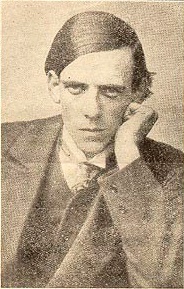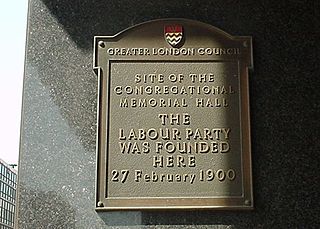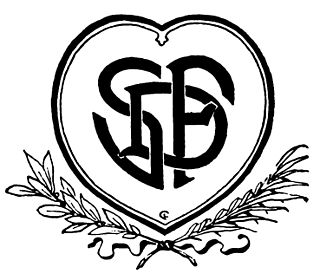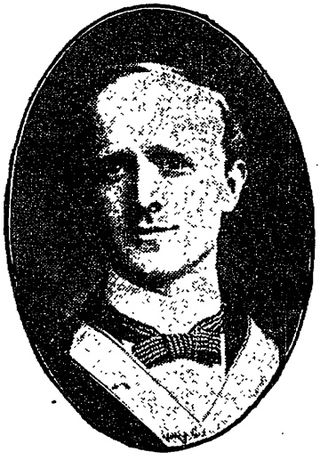Related Research Articles


James Keir Hardie was a Scottish trade unionist and politician. He was a founder of the Labour Party, and served as its first parliamentary leader from 1906 to 1908.

The Independent Labour Party (ILP) was a British political party of the left, established in 1893 at a conference in Bradford, after local and national dissatisfaction with the Liberals' apparent reluctance to endorse working-class candidates, representing the interests of the majority. A sitting independent MP and prominent union organiser, Keir Hardie, became its first chairman.

James Maxton was a British left-wing politician, and leader of the Independent Labour Party. He was a pacifist who opposed both world wars. A prominent proponent of Home Rule for Scotland, he is remembered as one of the leading figures of the Red Clydeside era. He broke with Ramsay MacDonald and the second minority Labour government, and became one of its most bitter critics. As the leader of the Independent Labour Party (ILP), he disaffiliated the ILP from the mainstream party in 1932. Afterwards, he became an independent dissident outside front-line politics.

The Scottish Labour Party (SLP), also known as the Scottish Parliamentary Labour Party, was formed by Robert Bontine Cunninghame Graham, the first socialist MP in the Parliament of the United Kingdom, who later went on to become the first president of the Scottish National Party, and Keir Hardie, who later became the first leader of the Independent Labour Party and the Labour Party.

General elections were held in South Africa on 15 September 1910 to elect the 121 members of the House of Assembly. They were the first general election after the Union of South Africa was created on 31 May 1910.

John Bruce Glasier was a Scottish socialist politician, associated mainly with the Independent Labour Party. He was opposed to the First World War.

Charles Butt Stanton was a British politician, who served as an Member of Parliament (MP) from 1915 to 1922. He entered Parliament by winning one of the two seats for Merthyr Tydfil at a by-election on 25 November 1915 caused by the death of Labour Party founder, Keir Hardie. After the two-member Merthyr Tydfil seat was divided into two single member seats, Stanton focused on the Aberdare division, which he won at the 1918 general election, but lost at the 1922 general election.
The Labour Leader was a British socialist newspaper published for almost one hundred years. It was later renamed New Leader and Socialist Leader, before finally taking the name Labour Leader again.

The Labour Representation Committee (LRC) was a pressure group founded in 1900 as an alliance of socialist organisations and trade unions, aimed at increasing representation for labour interests in the Parliament of the United Kingdom. The Labour Party traces its origin to the LRC's foundation.
Thomas Duckworth Benson (1857–1926), known as T. D. Benson, was a British socialist activist.
The Socialist Party of Northern Ireland, sometimes known as the Northern Ireland Socialist Party, was a small socialist group based in Northern Ireland in the 1930s.

The Social Democratic Federation (SDF) was established as Britain's first organised socialist political party by H. M. Hyndman, and had its first meeting on 7 June 1881. Those joining the SDF included William Morris, George Lansbury, James Connolly and Eleanor Marx. However, Friedrich Engels, Karl Marx's long-term collaborator, refused to support Hyndman's venture. Many of its early leading members had previously been active in the Manhood Suffrage League.
Alexander Gossip was a Scottish trade union leader and political activist.

John McKean McLachlan was a British socialist politician.
Isabella Bream Pearce was a socialist propagandist and suffrage campaigner. She was the vice-president of the Glasgow Labour Party, president of the Glasgow Women's Labour Party, and a member of the Cathcart School Board.
Henry William Sampson, OBE, often known as "Sammy", was an English-born South African trade unionist and politician.
The Natal Labour Party (NLP) was a social democratic political party in the Natal Colony.
Archibald Crawford was a Scottish-born South African trade union leader.
John Joseph Ware, sometimes known as "Honest John", was an Australian trade unionist, who became a politician in South Africa.
References
- 1 2 Ticktin, D. (1973). The Origins of the South African Labour Party: 1888-1910 (PDF). Cape Town: University of Cape Town. Retrieved 21 April 2021.
- ↑ Hyslop, Jonathan (2006). "The world voyage of James Keir Hardie: Indian nationalism, Zulu insurgency and the British labour diaspora 1907–1908". Journal of Global History. 1 (3): 343–362. doi: 10.1017/S1740022806003032 . S2CID 155356559.
- ↑ Gitsham, Ernest; Trembath, James H. (1926). A first account of labour organisation in South Africa (PDF). Durban: E. P. & Commercial Printing. Retrieved 11 April 2021.
- ↑ Brothers, O. F. (1907). The story of the first Transvaal Parliament. Blinman, Holwill and Islip.